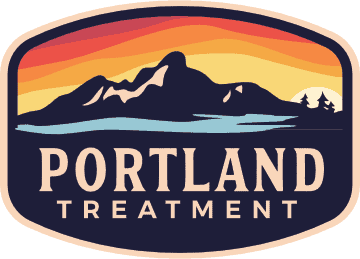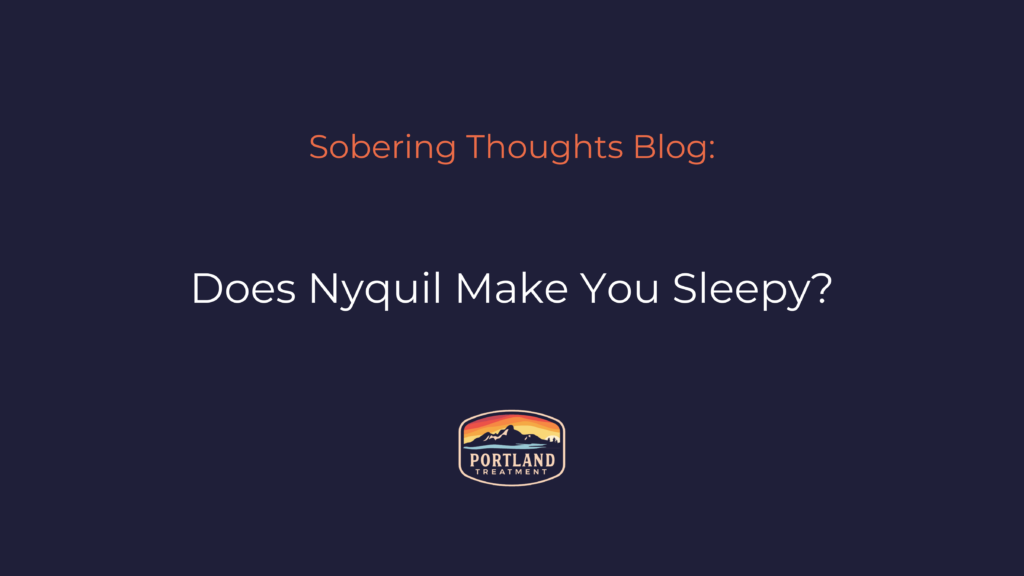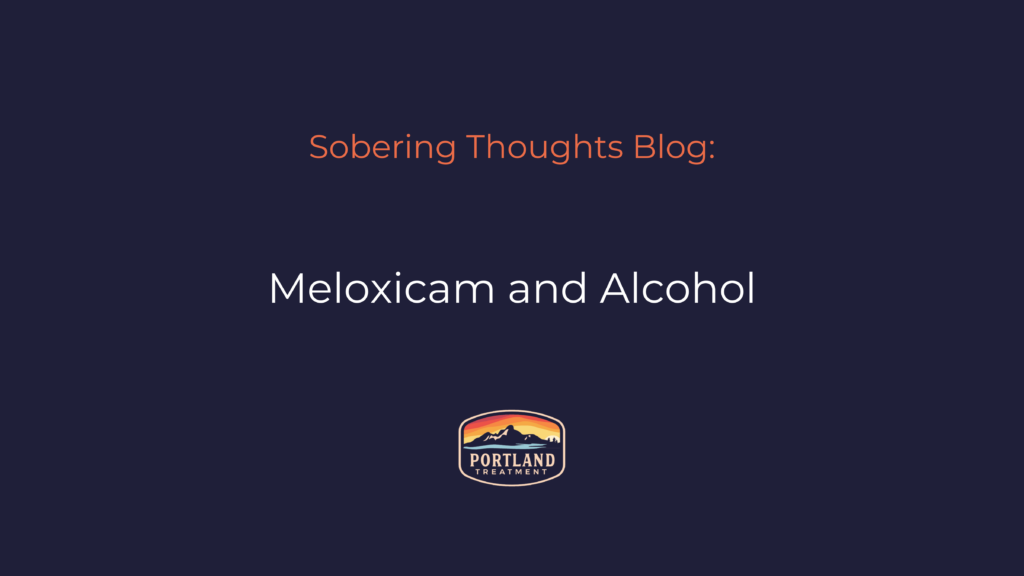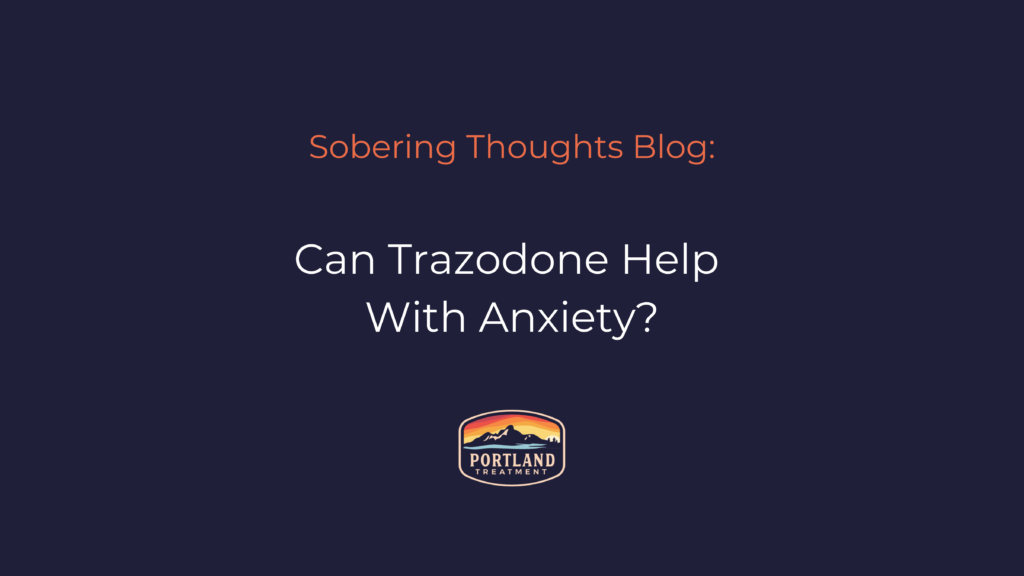Welcome to the comprehensive guide to co-occurring disorder treatment in Maine. In this detailed article, we will take an in-depth look into the world of dual diagnosis treatment centers in the vicinity of Portland, Maine, and explore the crucial relationship between substance use and mental health disorders. Our main focus will revolve around understanding the …
Welcome to the comprehensive guide to co-occurring disorder treatment in Maine. In this detailed article, we will take an in-depth look into the world of dual diagnosis treatment centers in the vicinity of Portland, Maine, and explore the crucial relationship between substance use and mental health disorders. Our main focus will revolve around understanding the essential mental health services provided during treatment, highlighting the personalized approach offered by Portland Treatment’s Dual Diagnosis Treatment Center. We will provide valuable insights into seeking professional help and securing appointments at the top dual diagnosis treatment centers in the region for the year 2023.
Throughout this guide, we will compare various facilities, identify the finest rehab centers for co-occurring disorders, and address common questions and concerns associated with treatment centers. Our aim is to assist you in comprehending the key factors to consider while selecting the most suitable treatment center, along with familiarizing you with the typical costs associated with addiction treatment and rehabilitation programs in Maine. As an additional resource, we will also delve into the services provided by SAMHSA’s National Helpline. This comprehensive article seeks to serve as your definitive guide for navigating the realm of co-occurring disorder treatment in Maine, with a strong emphasis on addiction treatment and drug rehab services offered by Portland Treatment.
At Portland Treatment, we embody a warm, inviting, and compassionate approach to those struggling with drug and alcohol addiction. Our dedicated team provides comprehensive addiction treatment services, ranging from Partial Hospitalization Program (PHP) to Intensive Outpatient Program (IOP) levels of care. By tailoring our services to meet individual needs, we ensure a personalized treatment experience that addresses both mental health disorders and substance use. We understand the unique challenges presented by co-occurring disorders and are committed to assisting individuals on their path to recovery, fostering healing and long-term well-being.
As we guide you through the array of co-occurring disorder treatment options in the vicinity of Portland, Maine, our goal is to provide you with the knowledge and resources necessary to make informed decisions regarding your or your loved one’s recovery journey. Whether you are seeking addiction treatment in Maine or specifically looking for drug rehab services in the Portland area, our guide will equip you with the information you need to take the first steps towards a healthier and happier life.
Let us take this journey together as we explore the world of addiction treatment in Maine and delve into the compassionate care provided by Portland Treatment.
Portland Treatment: Your Expert Center for Co-occurring Disorder Treatment in the Vicinity of Portland, ME
At Portland Treatment, we understand the unique challenges that individuals facing mental health and substance use concerns encounter. Our compassionate facility offers comprehensive care specifically tailored to address co-occurring disorders, providing you with the support and guidance you need to embark on your journey to recovery.
We prioritize personalized treatment, recognizing that each individual’s needs vary. By closely examining the intricate interplay between mental health and substance use, we develop individualized treatment plans that comprehensively address all aspects of co-occurring disorders. Our expert team integrates evidence-based therapies, such as cognitive-behavioral therapy and dialectical behavior therapy, into our programs, ensuring effective and lasting outcomes.
We firmly believe in the power of family involvement in the recovery process. That’s why our comprehensive approach includes family therapy, where we guide and support your loved ones through this transformative experience.
Located in the charming surroundings near Portland, Maine, our warm and inviting facility is dedicated to providing top-quality addiction treatment in Maine. Our highly trained professionals specialize in drug and alcohol addiction treatment, offering Partial Hospitalization (PHP) and Intensive Outpatient (IOP) levels of care to suit your unique needs.
At Portland Treatment, we understand the struggles you face and are committed to walking with you every step of the way. With our compassionate care and evidence-based approach, we are here to help you reclaim your life from the grasp of addiction. Contact Portland Treatment today to begin your journey toward lasting recovery.
Understanding Dual Diagnosis Treatment Centers
Dual diagnosis treatment centers are specialized facilities that focus on addressing the complex relationship between mental health disorders and substance use challenges. These centers offer integrated programs designed to provide holistic treatment for individuals with co-occurring disorders.
Exploring the Connection Between Substance Use and Mental Health Disorders
The connection between substance use and mental health disorders is a complex and intertwined relationship that requires specialized therapeutic interventions. Through therapy and counseling, individuals can explore the underlying factors contributing to the co-occurrence of these challenges and work towards sustainable recovery.
Substance use can significantly impact an individual’s mental health, often exacerbating symptoms of anxiety, depression, and other psychological disorders. With tailored therapeutic interventions, individuals can address the root causes of their substance use and the co-occurring mental health concerns, fostering a holistic approach to treatment.
Counseling plays a crucial role in helping individuals develop coping strategies and resilience, enhancing their ability to manage triggers and cravings while also addressing the emotional and psychological toll of their addictions. It provides a safe space for individuals to gain insight, process emotions, and map out a recovery journey that integrates their mental health needs.
Key Mental Health Services Provided During Treatment
During treatment at dual diagnosis facilities, individuals receive a range of key mental health services, including therapy and counseling tailored to their specific needs. The focus on individualized treatment allows for personalized care addressing the unique mental health challenges of each client.
These dual diagnosis facilities offer a comprehensive approach to mental health treatment, addressing co-occurring substance abuse and psychiatric disorders. Therapy sessions are designed to delve into the complexities of each individual’s mental health concerns, integrating evidence-based practices and behavioral therapies. Counseling sessions provide a supportive environment for clients to explore their emotions, develop coping skills, and navigate their recovery journey.
The individualized treatment approach fosters a deep understanding of each client’s history, triggers, and goals, enabling the development of tailored treatment plans. This personalized care extends to medication management, holistic wellness activities, and continuous monitoring of progress, emphasizing a client-centered approach that acknowledges the diversity of mental health needs.
At Portland Treatment, a leading drug and alcohol addiction treatment center near the beautiful city of Portland, Maine, we take a highly individualized approach to your recovery. Our compassionate team of professionals is committed to providing comprehensive care that addresses both mental health and addiction challenges, ensuring your well-being every step of the way.
We understand that every person’s journey is unique, which is why we offer personalized therapy and counseling tailored to your specific needs. Our evidence-based practices are designed to address the complex interplay between mental health and addiction, creating a holistic approach to dual diagnosis treatment in Maine.
With a focus on providing you with the best possible care, our dedicated team integrates therapy, counseling, and medical interventions to ensure a well-rounded and effective treatment experience. We believe that by offering personalized attention, we can make a significant impact on your recovery. Feeling heard and understood is crucial during this time, and that’s why we prioritize building trust and fostering a strong therapeutic alliance with you, ensuring sustainable long-term recovery.
At Portland Treatment, our warm and inviting facilities provide a safe and supportive environment for your journey towards healing. We offer a range of addiction treatment programs, including Partial Hospitalization Program (PHP) and Intensive Outpatient Program (IOP) levels of care. Our goal is to provide compassionate and effective drug rehab in Maine to those who are seeking a brighter, healthier future.
When it comes to addiction treatment in Maine, Portland Treatment stands out as a beacon of hope and support. Let us guide you on your path to recovery, empowering you to overcome addiction and embrace a life of lasting wellness.
Seeking Professional Help: Making an Appointment
When seeking professional help at a dual diagnosis treatment center, individuals can explore various levels of care, including outpatient and inpatient programs. Making an appointment to initiate the treatment process involves assessing the most appropriate level of care based on the individual’s needs.
Outpatient programs are designed for individuals who require structured support while still being able to live at home. It offers flexibility in scheduling therapy sessions and medical appointments, allowing individuals to continue with their daily responsibilities.
On the other hand, inpatient programs provide round-the-clock medical and therapeutic support, making it suitable for those needing intensive care and supervision. It’s crucial to consider the severity of the dual diagnosis and the level of support required to make an informed decision about the most suitable program.
Top Dual Diagnosis Treatment Centers in Maine (2023)
In 2023, Maine is home to several top dual diagnosis treatment centers, each committed to providing exceptional care for individuals with co-occurring disorders. With accreditations from organizations such as SAMHSA and Joint Commission, these facilities uphold high standards of quality and effectiveness in their programs.
These treatment centers prioritize a comprehensive approach to address both mental health and substance abuse issues, recognizing the interconnected nature of dual diagnoses. They offer personalized treatment plans tailored to each individual’s unique needs, ensuring that all aspects of their condition are fully addressed.
These centers boast a diverse range of therapeutic modalities, including:
- psychotherapy
- medication management
- holistic wellness practices
, providing patients with a well-rounded treatment experience. Their commitment to evidence-based practices and ongoing evaluation ensures that patients receive the most effective care for their complex needs.
Their dedicated and experienced staff members are equipped to handle the complexities of dual diagnosis, offering compassionate support and guidance throughout the recovery journey. These centers strive to create a supportive and understanding environment for individuals to achieve lasting healing and sobriety, making them standout options for those seeking top-quality care in Maine.
Overview of the Leading Treatment Centers
The leading dual diagnosis treatment centers in Maine offer comprehensive programs focused on addressing both substance abuse and mental health challenges. With a strong emphasis on therapy and counseling, these facilities provide a supportive environment for individuals seeking recovery from co-occurring disorders.
These treatment centers typically employ a multidisciplinary approach, integrating medical professionals, therapists, and counselors to tailor individualized treatment plans. They prioritize dual diagnosis care, acknowledging the interconnectedness of substance abuse and mental health issues. Through evidence-based therapies and mental health counseling, they address the complexities of simultaneous disorders, promoting long-term recovery.
The supportive environment extends beyond clinical interventions. Centers often incorporate holistic practices like mindfulness, yoga, and art therapy to foster emotional well-being. They provide education on relapse prevention and life skills, give the power toing individuals for sustained wellness.
Comparing Different Dual Diagnosis Treatment Facilities in Maine
When comparing different dual diagnosis treatment facilities in Maine, it’s essential to assess the comprehensiveness of care and the available levels of care, including outpatient options. Understanding the distinct features of each facility is crucial for selecting the most suitable treatment center.
Evaluating the range of therapeutic interventions and evidence-based practices offered by each facility is imperative. This may encompass psychotherapy, medication management, support groups, life skills training, and holistic wellness programs.
Consider the qualifications and experience of the medical and mental health professionals at the facility. The expertise of the staff, especially in treating co-occurring disorders, significantly impacts the quality of care.
Examining the environment and amenities of the treatment center, such as the living conditions, recreational activities, and aftercare services, can provide valuable insights into the overall treatment experience.
Grading System for Dual Diagnosis Treatment Centers
A grading system for dual diagnosis treatment centers involves evaluating criteria such as accreditation from reputable organizations like CARF and recognition from entities such as the National Alliance on Mental Illness. This system ensures transparency and quality assessment for individuals seeking the best care.
Accreditation from organizations like CARF sets a high standard for the treatment center’s quality of care, ensuring that the facility meets rigorous guidelines and provides evidence-based services for dual diagnosis patients. Recognitions from entities such as the National Alliance on Mental Illness indicate that the center has met specific criteria related to mental health treatment and support services.
These evaluations offer potential patients and their families reassurance that the treatment center has been thoroughly assessed and meets recognized standards of care. By considering these essential factors, individuals seeking care for both mental health and substance abuse issues can make more informed decisions about their treatment options, leading to improved outcomes and long-term recovery.
Best Maine Co-Occurring Disorders Rehabs
In Maine, individuals can access the best co-occurring disorders rehabs that prioritize effective treatment and support for sustainable recovery. These facilities often accept insurance and provide aftercare services, aligning with the standards set by organizations like SAMHSA.
Co-occurring disorders, also known as dual diagnosis, require specialized care that addresses both mental health and substance abuse issues. The best co-occurring disorders rehabs in Maine offer integrated treatment programs, personalized to each individual’s needs. With a focus on evidence-based therapies and experienced staff, these rehab centers effectively address complex cases.
They understand the financial concerns of seeking treatment and strive to make it accessible by accepting various forms of insurance. After the initial treatment, they provide comprehensive aftercare services, such as counseling, support groups, and transitional housing to ensure ongoing support for long-term recovery.
Identifying the 6 Best Facilities for Co-Occurring Disorders in Maine
Identifying the 6 best facilities for co-occurring disorders in Maine involves considering factors such as accreditation, insurance acceptance, and adherence to SAMHSA guidelines. These top-tier facilities prioritize comprehensive care and personalized treatment for individuals facing co-occurring challenges.
One crucial aspect in evaluating these facilities is their accreditation. Accredited centers demonstrate commitment to meeting quality standards and maintaining excellence in care. Additionally, insurance acceptance plays a pivotal role in ensuring accessibility for individuals seeking treatment, as it can significantly impact affordability and coverage options.
Adherence to SAMHSA guidelines signifies a dedication to evidence-based practices and ethical standards, ensuring that treatment approaches are rooted in the latest scientific research and best practices.
Rehabs Accepting Insurance for Co-Occurring Disorders
Many rehabs in Maine accept insurance for co-occurring disorders treatment, offering various levels of care, including structured outpatient programs and residential options. Understanding the insurance coverage options is crucial for individuals seeking quality treatment that aligns with their financial resources.
It’s important to explore the specific types of insurance plans accepted by each rehab facility, as well as the level of coverage provided for co-occurring disorders. Some rehabs may have partnerships with multiple insurance providers, offering more flexibility for potential patients. In addition, insurance coverage can greatly influence the choice between intensive outpatient programs, partial hospitalization, or residential treatment, as these options vary in their duration, intensity, and overall support.
Common Questions About Co-Occurring Disorders Treatment Centers
Common questions about co-occurring disorders treatment centers often revolve around the availability of SAMHSA’s helpline, the range of behavioral health services offered, and the eligibility criteria for accessing specialized care. Addressing these inquiries can give the power to individuals to make informed choices regarding their treatment options.
When seeking help for co-occurring disorders, it’s essential to understand the comprehensive support available. SAMHSA’s helpline offers confidential, 24/7 assistance, connecting individuals to local resources and treatment facilities. These treatment centers provide a spectrum of services, including integrated mental health and substance use treatments, therapy, medication management, and peer support groups. Eligibility for specialized care may depend on factors such as the severity of the conditions and the individual’s commitment to recovery. Understanding the options and criteria can guide individuals towards effective and tailored treatment plans.
Choosing the Right Center for Your Needs
Choosing the right center for your co-occurring disorder treatment in Maine involves considering factors such as the program’s cost, the comprehensiveness of care, and the alignment of services with your specific needs. Making an informed decision is essential for embarking on a successful recovery journey.
When approaching the decision, it’s important to evaluate the cost of the program. Consider whether your insurance covers the treatment and if there are any out-of-pocket expenses. A comprehensive care approach encompasses both mental health and substance abuse treatment. Look for a center that offers integrated care addressing both aspects.
Ensure that the services offered align with your individual needs. This may involve examining the types of therapy, medical support, and aftercare options available at the facility.
Factors to Consider When Selecting a Co-occurring Disorder Treatment Center
When selecting a co-occurring disorder treatment center, it’s crucial to consider factors such as the provision of comprehensive care, adherence to SAMHSA guidelines, and the availability of aftercare support. These elements contribute to the effectiveness and sustainability of the treatment experience.
Comprehensive care entails a holistic approach that addresses both mental health and substance abuse issues concurrently. Look for treatment centers that offer tailored plans which integrate therapy, medication management, and support for co-occurring conditions. Adherence to SAMHSA guidelines ensures that evidence-based practices are followed, leading to high-quality, ethical treatment. Aftercare support, including access to support groups, therapy sessions, and sober living arrangements, is vital in helping individuals maintain their recovery post-treatment.
Understanding the Typical Cost for Maine Rehabs
Understanding the typical cost for rehabs in Maine involves assessing factors such as insurance coverage, the structure of the treatment program, and the available levels of care. Having clarity on the financial aspects enables individuals to make informed decisions about their treatment options.
When considering the cost of rehabs in Maine, insurance coverage plays a significant role. It’s essential to explore what your insurance policy covers and what it doesn’t. The structure of the treatment program also impacts the overall cost. Inpatient programs tend to be more expensive than outpatient programs due to the accommodation and round-the-clock care.
Different levels of care come with different price points, from medically managed detox to residential or intensive outpatient care. Having a clear understanding of these factors can help individuals budget and plan for their rehabilitation journey.
Resource: SAMHSA’s National Helpline
SAMHSA’s National Helpline serves as a valuable resource for individuals seeking support for mental health and substance abuse challenges. With a focus on promoting recovery and offering behavioral health services, the helpline provides crucial assistance for those in need.
The helpline offers confidential and free support 24/7, connecting callers with local treatment facilities, support groups, and community-based organizations. Through compassionate and knowledgeable helpline operators, individuals can access information on mental health disorders, treatment options, and local resources, paving the way for healing and recovery.
Exploring SAMHSA’s National Helpline and its Services
Delve into SAMHSA’s National Helpline and its array of services tailored to support individuals dealing with mental health and substance abuse issues. The helpline’s dedicated assistance contributes to fostering recovery and well-being within the community.
The helpline offers a confidential, free, 24/7 information service for individuals and family members facing mental and/or substance use disorders. Trained professionals provide supportive guidance, crisis intervention, and treatment referrals to suitable facilities and support groups. The helpline connects callers with local treatment and support resources, including community-based organizations and government agencies. Through its comprehensive approach, SAMHSA’s National Helpline plays a crucial role in give the power toing individuals to access the necessary aid for their recovery journey.
FAQs about SAMHSA’s National Helpline
Explore the frequently asked questions about SAMHSA’s National Helpline, covering topics related to mental health, substance abuse, and the available support services. Addressing these common queries can help individuals understand the valuable assistance provided by the helpline.
The National Helpline is a confidential, free, 24-hour-a-day, SAMHSA-supported information service for individuals and family members facing mental and/or substance use disorders. By calling 1-800-662-HELP (4357), individuals can receive information and referrals to local treatment facilities, support groups, and community-based organizations. Not only does the Helpline provide essential resources, but it also offers assistance in a compassionate and respectful manner, promoting hope and recovery.
One of the main benefits of the National Helpline is that it connects individuals in need with professionals who can offer immediate support and guidance. This valuable resource is dedicated to helping individuals navigate through the complexities of mental health and substance abuse issues, offering solutions and support that can make a significant difference in their lives.
Frequently Asked Questions
What is Maine’s Expert Center for Co-occurring Disorder Treatment?
Maine’s Expert Center for Co-occurring Disorder Treatment is a specialized facility that offers comprehensive and integrated treatment for individuals with co-occurring mental health and substance use disorders.
What types of services are offered at Maine’s Expert Center for Co-occurring Disorder Treatment?
Maine’s Expert Center for Co-occurring Disorder Treatment offers a range of services including individual therapy, group therapy, medication management, and education and support groups. They also provide case management and assistance with accessing community resources.
How is Maine’s Expert Center for Co-occurring Disorder Treatment different from other treatment centers?
Maine’s Expert Center for Co-occurring Disorder Treatment takes a holistic approach to treatment, addressing both mental health and substance use disorders simultaneously. They also use evidence-based practices and have specialized staff with expertise in co-occurring disorders.
Who can benefit from treatment at Maine’s Expert Center for Co-occurring Disorder Treatment?
Individuals who are struggling with both mental health and substance use disorders can benefit from treatment at Maine’s Expert Center for Co-occurring Disorder Treatment. They also offer support for family members and loved ones of those with co-occurring disorders.
How long does treatment at Maine’s Expert Center for Co-occurring Disorder Treatment last?
The length of treatment at Maine’s Expert Center for Co-occurring Disorder Treatment varies depending on the individual’s needs and progress. They offer both short-term and long-term treatment options.
How can I access services at Maine’s Expert Center for Co-occurring Disorder Treatment?
You can access services at Maine’s Expert Center for Co-occurring Disorder Treatment by contacting them directly or through a referral from a healthcare provider. They also accept most insurance plans and offer sliding scale fees for those without insurance.
Comprehensive and Compassionate Addiction Treatment at Portland Treatment in Maine
At Portland Treatment in Maine, we are deeply committed to providing comprehensive and compassionate care for those struggling with addiction. Our approach is holistic, focusing on the individual as a whole, rather than just the symptoms of addiction. We understand that each journey to recovery is unique, and our expert team is dedicated to creating personalized treatment plans that cater to the specific needs and circumstances of each client.
Our facility offers a wide range of services designed to support individuals at every stage of their recovery journey. From initial detoxification to inpatient rehab, outpatient programs, and ongoing aftercare support, we ensure a continuum of care that fosters lasting recovery. Our treatment modalities include evidence-based therapies, innovative treatment techniques, and holistic approaches that encompass mental, physical, and emotional health.
Recognizing the importance of a supportive environment in the recovery process, Portland Treatment provides a nurturing and safe space where individuals can heal and grow. Our programs are designed to empower clients, helping them develop the skills and resilience needed to overcome addiction and rebuild their lives. Family involvement is also a key component of our approach, as we believe in healing and strengthening family relationships as part of the recovery journey.
At Portland Treatment, we pride ourselves on our team of highly qualified professionals who bring a wealth of experience and expertise to our programs. Our staff includes licensed therapists, medical professionals, and addiction specialists who are passionate about helping individuals achieve sobriety and wellness. We are constantly evolving our practices to incorporate the latest research and best practices in addiction treatment, ensuring the highest standard of care for our clients.
Choosing Portland Treatment in Maine means choosing a path to recovery that is supported by expertise, compassion, and a commitment to excellence. We are not just a treatment center; we are a community dedicated to helping individuals and their families overcome the challenges of addiction and move forward to a brighter, healthier future.






